Secret factory in Russia expands production of Iranian-designed drones - CNN
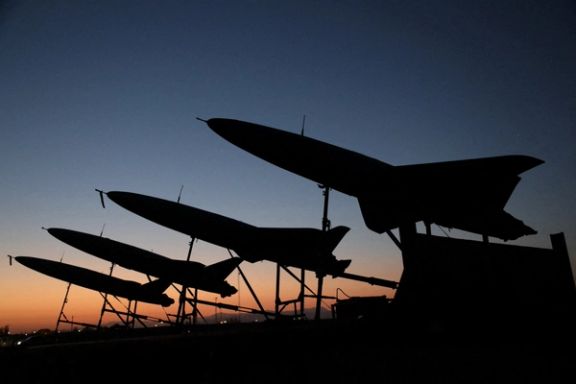
A clandestine factory in Russia is significantly scaling up production of Iranian-designed drones for use in the Ukraine war, according to a CNN investigation.

A clandestine factory in Russia is significantly scaling up production of Iranian-designed drones for use in the Ukraine war, according to a CNN investigation.
The plant, located in the Alabuga Special Economic Zone in Russia's southern Tatarstan region, utilizes a range of Chinese components in the production of these Iranian-designed attack and surveillance drones, according to the report.
Satellite imagery analyzed by CNN and experts shows that two additional buildings have been constructed at the site, and security increased.
In June 2023, US intelligence alleged Iran was aiding Russia in building a drone manufacturing facility in Yelabuga, within the Alabuga Special Economic Zone on the steppes of the Tatarstan region.
The plant focuses on producing Shahed-136 drones domestically, which Russia rebranded as the Geran-2. The collaboration aims to manufacture approximately 6,000 drones by mid-2025, ensuring a consistent supply for Russia's military needs.
CNN's analysis of associated social media accounts and assessments from Ukrainian defense intelligence sources reveal the factory's significant expansion and its reliance on a young, low-skilled workforce of Russian teenagers and African women.
The sources, who spoke to CNN anonymously for safety reasons, said that the factory is now also producing thousands of “decoy” drones, designed to exhaust Ukrainian defenses.
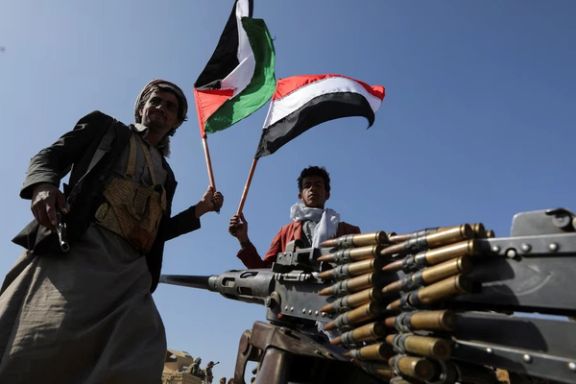
Israel said it carried out attacks on Yemen's main port and airport on Thursday as in an effort to end persistent ballistic missile attacks carried out with Iranian help.
An armed Shi'ite movement which controls most of northern Yemen, the Houthis are armed by Iran and part of its so-called Axis of Resistance against Israel.
The group is one of Iran's only robust armed allies after rebels toppled Syria's Bashar al-Assad in Syria while Palestinian Hamas and Lebanese Hezbollah have been degraded by Israeli ground and air raids for much of the last 14 months.
"We are determined to cut off this terror arm of the Iranian axis of evil. We will persist in this until we complete the job," Israel's Prime Minister Benjamin Netanyahu said in a video statement from the the air force command center in Tel Aviv.
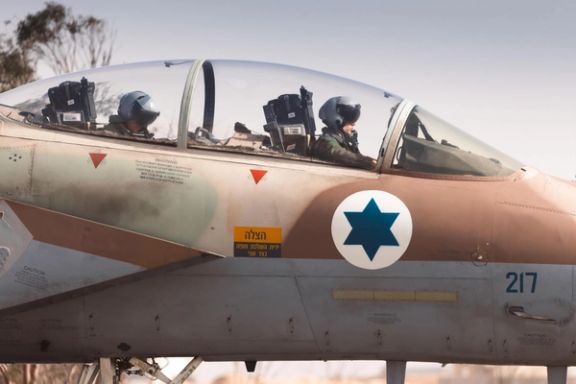
In a statement, the Israeli military said it had struck military infrastructure at Sana’a International Airport, two power stations and three Red Sea ports including the country's largest, Hodeida.
"These military targets were used by the Houthi terrorist regime to smuggle Iranian weapons into the region and for the entry of senior Iranian officials, the Israeli military said. "This is a further example of the Houthis' exploitation of civilian infrastructure for military purposes."
The Houthis have launched multiple missile attacks at Israel in recent weeks, setting off warning sirens and stoking unease just as other military fronts mostly die down.
Yemen's rulers deny being a proxy of Tehran and say their fight against Israel and the United States is in solidarity with the Palestinian people.
"The Houthi terrorist regime is a central part of the Iranian axis of terror, and their attacks on international shipping vessels and routes continue to destabilize the region and the wider world," the Israeli military said.
"(It) operates as an autonomous terrorist group while relying on Iranian cooperation and funding to carry out its attacks."
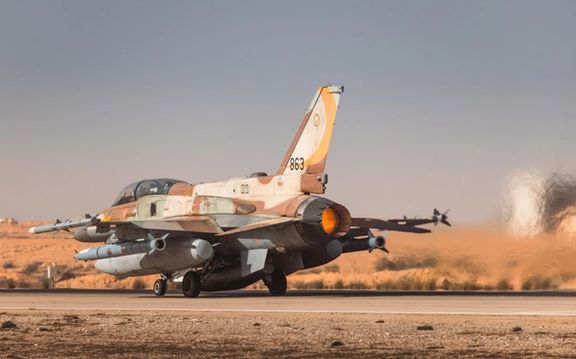
Prime Minister Benjamin Netanyahu said this week that Israel would dole out the same treatment it gave Assad, Hamas and Hezbollah to the Houthis, while Defense Minister Israel Katz, vowed to "behead" Houthi leaders.
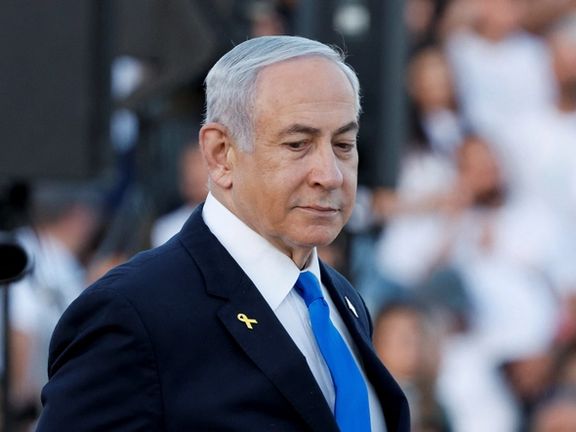
The Israeli prime minister said Wednesday Yemen's Houthi militants will learn the lesson fellow Iran-backed militant groups like Hamas and Hezbollah learned from the Jewish state.
"Israel is striking the enemies and those who thought they will sever our lives here, so it will apply to everyone," Benjamin Netanyahu said on Wednesday.
"The Houthis too will learn what Hamas and Hezbollah and Assad’s regime and others learned, and even if it takes time this lesson will be learned across the Middle East," he added.
His comments came two days after his defense minister, Israel Katz, vowed to "behead" the Houthis' leaders in response to their ongoing missile and drone launches against Israel.
"These days, when the Houthi terrorist organization is firing missiles at Israel, I want to convey a clear message to them at the beginning of my remarks: We have defeated Hamas, we have defeated Hezbollah, we have blinded Iran's defense systems and damaged the production systems, we have toppled the Assad regime in Syria, we have dealt a severe blow to the axis of evil, and we will also deal a severe blow to the Houthi terrorist organization in Yemen, which remains the last to stand," Katz said.
"We'll severely cripple the Houthis, damage their strategic infrastructure, and we will behead their leaders – just as we did to Haniyeh, Sinwar and Nasrallah in Tehran, Gaza and Lebanon – we will do it in Hodeidah and Sana'a," Katz added.
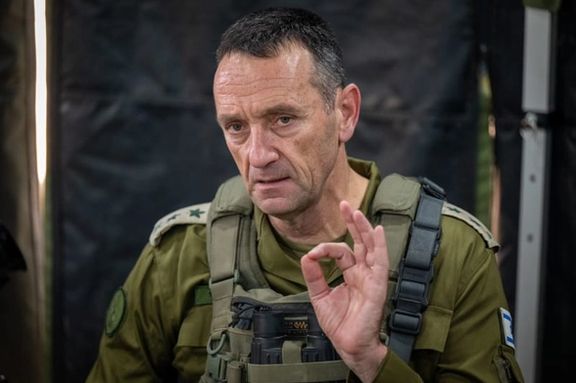
Israel's top military commander has issued a warning to Iran and its armed regional allies against further attacks on the Jewish state, saying that Israel is prepared to respond at a time and place of its choosing.
“Iran should know, its proxies should know and the entire Middle East, anyone who tries to undermine the stability and security of the State of Israel, the IDF will stand firm against them, ready to strike at any time and in any place,” the Israel Defense Forces (IDF) Chief of Staff Herzi Halevi said on Wednesday.
He made the remarks at a pilot graduation ceremony, two days after the Israeli prime minister vowed to continue targeting anyone who tries to harm the Jewish state, amid growing calls by Israeli officials for more direct strikes on Iran in response to the ongoing attacks on Tel Aviv by Tehran-backed Houthis.
"Israel is consolidating its deterrent power, it is striking at those who seek to harm it, it is collapsing Iran's terror branches one after the other," Benjamin Netanyahu told the Israeli Knesset.
Netanyahu said Tehran was still "busy licking the wounds from the blows we inflicted on them", adding he had instructed the Israeli military in recent days to attack strategic targets of Yemen's armed Houthi group in response to their missile launches at Israel.
The Houthis fired another missile at Israel on Tuesday, despite multiple airstrikes by the United States and Israel against their positions in Yemen over the past few days.
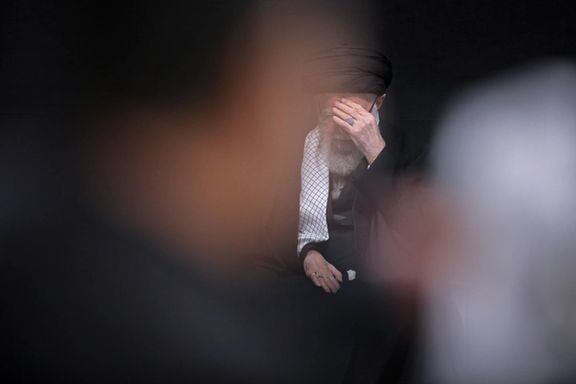
The world is witnessing a period of significant regional setbacks and retreats for the Islamic Republic. After two decades of massive financial expenditures and international isolation, Tehran’s strongholds and allies are crumbling one by one across the region.
This phase began with the defeats of Hamas and Hezbollah, continued with the weakening of Bashar al-Assad and Iran’s diminishing influence in Syria, and is now advancing as Israel focuses on defeating the Houthis in Yemen.
Evidence suggests that even Iraq’s pro-Tehran Hashd al-Shaabi militia has scaled back its overt support for the Islamic Republic’s agenda, leaving Tehran increasingly isolated in the face of an alliance comprising the US, Israel, and even Europe. Domestically, severe economic challenges and widespread public dissatisfaction have created one of the most difficult periods in the history of the Islamic Republic.
In this context, the overall US policy is combining political, economic, and even military pressure to push the Islamic Republic to the negotiating table. The aim is to reach an agreement stricter than the JCPOA, either halting Iran’s nuclear and missile programs or exposing it to intensified pressure and even potential military action if it refuses to comply.
Despite its structural weaknesses and mounting international pressures, the Islamic Republic’s leadership remains defiant. Supreme Leader Ali Khamenei threatens nuclear weaponization and reclaiming Syria, while simultaneously sending signals of willingness to negotiate through diplomats like Mohammad Javad Zarif. However, it appears that the US, Israel, and even Europe are aware of the dangers of a resurgent Islamic Republic and are determined to prevent it from returning to a position of defiance and belligerence.
The chain of setbacks for the Islamic Republic began with Hamas’ attack on Israel in October 2023. Tehran mistakenly believed this assault would inflict an irreparable defeat on Israel.
Misguided analyses by the Islamic Republic’s leaders, particularly Khamenei and IRGC commanders, led to decisions that resulted in a series of defeats.
In response to the attack, Israel acted swiftly, strengthening its regional position within 15 months. This included large-scale military operations against Hamas, destruction of its military bases, and the assassination of senior leaders such as Yahya Sinwar, Saleh al-Arouri, and Ismail Haniyeh. Israel also ignored warnings from the US and the international community to launch an offensive in Gaza, leveraging force to reshape the Middle East.
The second major misstep by the Islamic Republic occurred when it urged Hezbollah to attack Israel’s northern borders in support of Hamas. Initially, Israel issued repeated warnings for Hezbollah to cease its aggression. When these warnings were ignored, Israel launched an operation dubbed New Order, which delivered surprising results. These included the destruction of Hezbollah’s command centers and equipment, as well as the killing of senior leaders, including Hassan Nasrallah. These developments fundamentally altered the region’s dynamics and demonstrated that, like Hamas, Hezbollah lacks the capability to withstand Israel’s extensive military campaigns.
On the international stage, the US and Europe, recognizing the Islamic Republic’s vulnerabilities, are now seeking to capitalize on this opportunity to drive significant changes in Iran’s regional policies. Meanwhile, Israel’s aggressive strategies aim to keep Tehran on the defensive.
Within Iran, widespread public dissatisfaction with the regime’s policies and economic mismanagement has deeply affected the country’s social and political landscape.
Popular protests and civil movements highlight the critical role of the Iranian people in shaping the nation’s future. The convergence of international, regional, and domestic pressures has created a historic opportunity to move beyond the Islamic Republic.
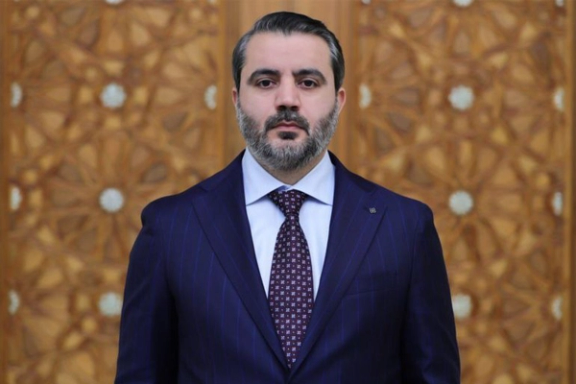
Syria's newly appointed foreign minister, Asaad Hassan al-Shibani, warned Iran on Tuesday against spreading chaos in Syria, a few days after Iran's Supreme Leader threw his weight behind another regime change in the Arab country.
"Iran must respect the will of the Syrian people and the sovereignty and safety of the country, and we warn them against spreading chaos in Syria and we also hold them responsible for the consequences of the recent statements," the Syrian minister said in a post on X.
His remarks came shortly after Iran's Supreme Leader Ali Khamenei openly opposed Syria's new government, spoke of the need to overthrow it, and announced plans to form a group to combat the Damascus administration.